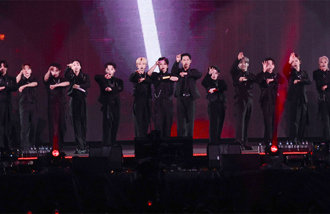U.S. Presidential Election is Going too Far
U.S. Presidential Election is Going too Far
Posted October. 20, 2004 22:57,
The U.S. presidential election is going too far. The candidates not only slander each other, but they also foster fear among voters. Graphic scenes where an arm of a soldier being blown off by a grenade explosion appear in TV advertisements, and the presidential nominee talks about the possibility of nuclear terror attacks.
As more than 90 percent of the voters are thought to have already decided on which candidate to vote for, the candidates are using excessive strategies to grab last-minute votes, the U.S. media analyzes. Because the memories of the September 11 terrorist attack are so deeply rooted in voters minds, it is believed that only extreme and provocative campaigning would appeal to voters.
This leads to the appearance of many scenarios that predict a negative future right after the election.
The Last Resort: Scaring Voters-
The presidential candidates themselves are first to create fear among voters. Vice President Dick Cheney said at a campaign stop in Ohio on October 19 that the biggest terrorist threat to the U.S. is the possibility that terrorists armed with nuclear or bio-chemical weapons might appear in the center of cities and take thousands of lives.
Cheney later explained that this example was intended to show how Kerry is not determined to obliterate terrorism, but his statement is vulnerable to the criticism that a sitting vice president irresponsibly mentioned a terrorist threat without any specific evidence.
Kerry can also be criticized for fear mongering because of his warnings on the possible introduction of a military draft and a reduction in social security benefits.
Kerrys intention is to scare young people by saying that if Bush gets re-elected, the military draft system might be reinstituted in order to augment military forces stationed in Iraq. Kerry is trying to foster a sense of fear among senior citizens by saying that Republicans might drastically reduce medical benefits for senior citizens in the near future.
The New York Times, which has officially announced its support for Kerry, pointed out that Kerry is repeating banal, groundless rumors.
Negative Scenarios after the Election
Slate.com, a webzine run by MSN, reported on October 18 that the result of the election might not come out until the morning of November 3, the day after the election, and the United States might have to wait for several months for a court decision on who will become the next president.
First, because of technological hindrances, recounting of votes like what happened in Florida in 2000 might have to be repeated since old-fashioned punch cards are still used in most states. In Ohio, one of the states where fierce competition is anticipated, over 70 percent of voters will be using punch cards.
Next is the issue of validity. The lawsuit over whether to sustain the votes of the citizens who have voted outside of the their electoral district is still pending in four states. When the election happens to be a close battle in certain states, and the difference in the number of votes is within thousands, provisional ballots can overturn results.
Colorado is designing a state law that would scrap its winner-take-all system of awarding electoral votes and give its electoral votes to all candidates according to the percentage of the votes that each candidate receives. If Colorado decides to apply the amendment, it is likely to arouse controversy.
Seung-Ryun Kim Hye-Yoon Park srkim@donga.com parkhyey@donga.com







